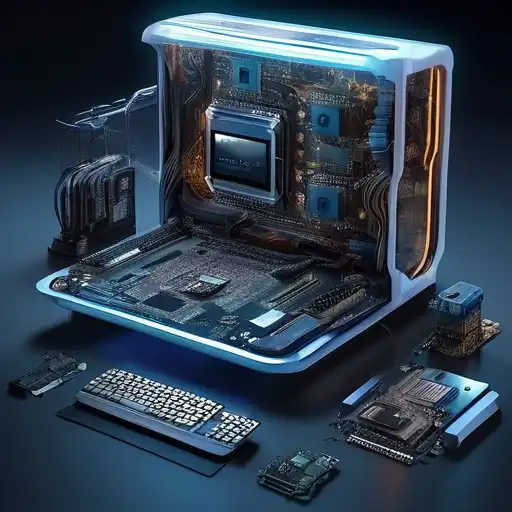The Evolution of Hardware Technology
As we stand on the brink of technological revolutions, the future of hardware is a topic of intense speculation and excitement. From quantum computing to biodegradable electronics, the next decade promises to bring groundbreaking advancements that will redefine our interaction with technology.
Quantum Computing: The Next Big Leap
Quantum computing represents a monumental shift in processing power. Unlike traditional computers, which use bits to process information, quantum computers use quantum bits or qubits. This allows them to solve complex problems in seconds that would take current supercomputers thousands of years.
Biodegradable Electronics: A Sustainable Future
With the growing concern over electronic waste, researchers are developing biodegradable hardware components. These innovations aim to reduce environmental impact while maintaining, or even enhancing, performance and durability.
AI-Optimized Hardware
Artificial intelligence is not just software; it requires specialized hardware to function efficiently. Companies are now designing processors specifically optimized for AI tasks, enabling faster and more energy-efficient computations.
The Rise of Flexible and Wearable Technology
Flexible electronics and wearable technology are set to become more prevalent, offering unprecedented convenience and functionality. From foldable smartphones to health-monitoring garments, the possibilities are endless.
Challenges and Opportunities
Despite the exciting prospects, the future of hardware faces significant challenges. Issues such as privacy concerns, the digital divide, and the need for sustainable production methods must be addressed to fully realize the potential of these technologies.
Privacy and Security in the Age of Advanced Hardware
As hardware becomes more sophisticated, so do the threats to privacy and security. Developing secure systems that protect user data without compromising performance is a critical challenge for the industry.
Bridging the Digital Divide
The advancement of hardware technology must be inclusive, ensuring that benefits are accessible to all segments of society. Efforts to reduce costs and improve accessibility are essential in achieving this goal.
Conclusion
The future of hardware is bright, filled with innovations that promise to transform our world. By addressing the challenges head-on, we can ensure that these advancements lead to a more efficient, sustainable, and inclusive future.
For more insights into the latest in technology, check out our articles on quantum computing and sustainable technology.
